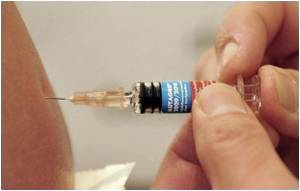Mass vaccination to protect children from measles and polio has been launched in typhoon-hit Philippines, say UN agencies.

"The children of Tacloban need all the protection they can get right now," UNICEF emergency response coordinator Angela Kearney said in a joint statement by the agencies.
"Disease is a silent predator, but we know how to prevent it and we will do everything that we can."
Sigrun Roesel, team leader of the WHO's Philippine immunisation programme, said the sometimes crowded and insanitary conditions at evacuation centres were potential breeding grounds for disease.
"Measles is a dangerous disease for young children, who could then catch pneumonia and die from it, especially if they are malnourished," Roesel said.
She said the measles virus was a particular concern because it could easily be transmitted through coughing and sneezing.
Advertisement
"But Filipinos do a lot of international travelling and so there is a special effort to protect against its possible reintroduction," she said.
Advertisement
The government's confirmed death toll from Haiyan, which brought some of the strongest winds ever recorded and tsunami-like storm surges, rose by about 250 to 5,500, with another 1,757 people missing.
The death toll has continued to climb because full assessments are still yet to be made in the devastated communities, and not because many more people have died in the aftermath of the typhoon.
Haiyan rivals a 1976 tsunami on the southern island of Mindanao as the deadliest recorded natural disaster to strike the Philippines. The 1976 disaster killed between 5,000 and 8,000 people.
Source-AFP










